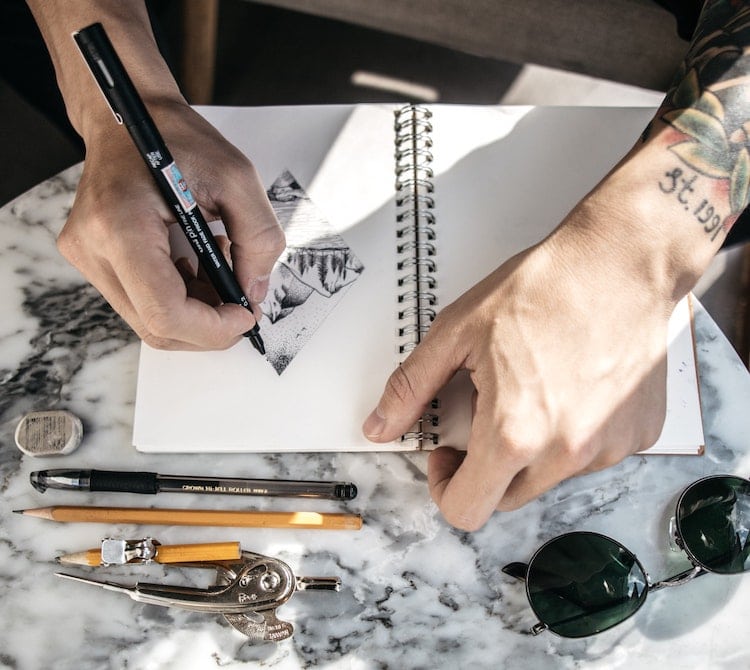
Photo: Kaizen Nguyễn
This post may contain affiliate links. If you make a purchase, My Modern Met may earn an affiliate commission. Please read our disclosure for more info.
Whether you’re a professional artist or a hobbyist who wants to get serious about your craft, you’re going to need an essential set of supplies. Drawing comes with its own list of recommended sketching utensils from erasers to pencils to tools that help you blend graphite. While these might not be the only items you need to tackle a specific project, they are some of the best to have on hand if you feel like sketching on the fly or if you’re looking to complete a simple drawing exercise.
So, how do you start building your drawing kit? Scroll down for our suggestion of supplies to buy.
Essential Art Supplies for Drawing
With all drawing supplies, it’s best to try a few brands before you make your final decision of what will be your go-to pencil maker or sketchbook producer. They might be the same type of products, but each manufacturer will have their own formulas and characteristics you may love or hate.
To ensure you’re getting the highest quality supplies, we recommend opting for “Artist” or “Professional” grade on the label as opposed to “Student” grade. The latter tend to be made of lower quality materials which, while cutting down on cost, probably won’t save you much money in the long run; they won’t last as long.
A Range of Graphite Pencils
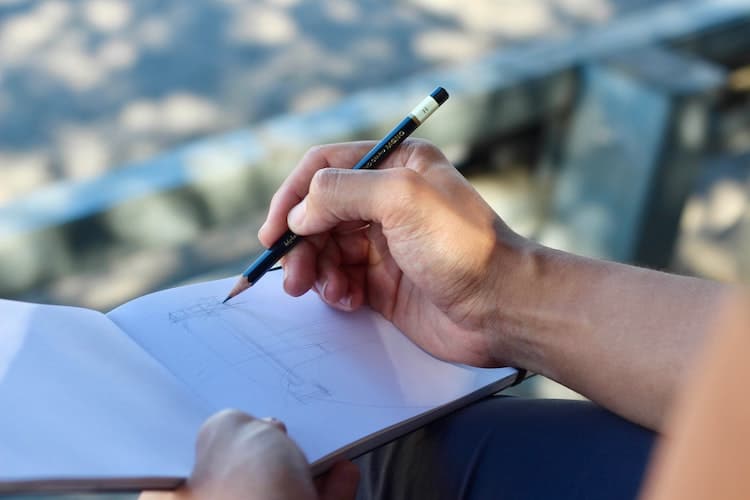
Photo: Chance Centeno
Pencils might seem dull, but don’t sleep on this ubiquitous utensil. They have serious range. Great graphite is an essential part of an artist’s tools, and there are many considerations you’ll need to make when selecting a pencil. One of the first things is to figure your personal drawing style. Are you interested in tight, detailed technical drawing, or do you prefer loose sketching such as figure drawing? Do you like making thick, dark lines, or do find yourself gingerly moving your pencil back and forth across the page?

Photo: smbhax
In the course of your drawing, you’re bound to find a pencil that you like, but make sure you have at least two or three of these utensils handy. Doing this will allow you to “mix and match” the needs of your drawing. An “H” pencil can be used for light sketching while a “B” grade is ideal for capturing shadows.
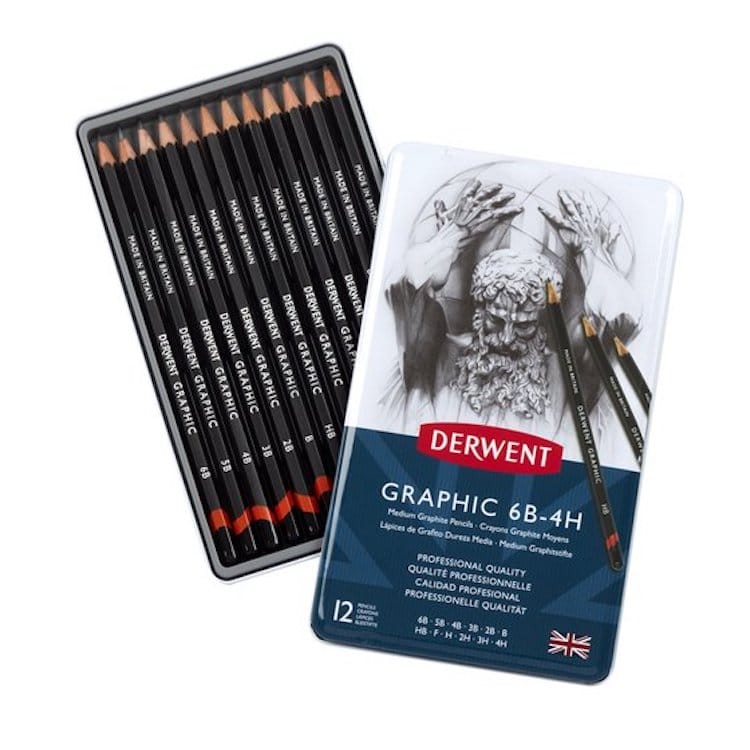
Derwent | $17.21
We like Derwent’s set of 12 pencils. Check out our guide for more of the best drawing pencils for professionals and beginners who love to sketch.
A Trusty Set of Colored Pencils
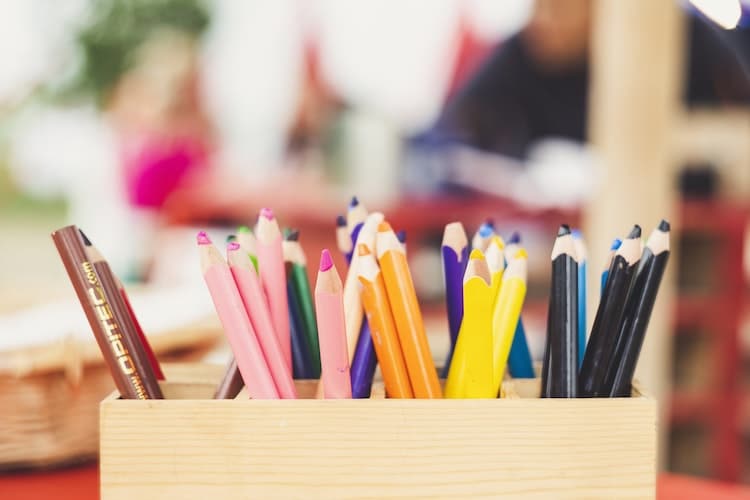
Photo: Markus Spiske
Colored pencils are commonly associated with kids or adult coloring books, but they have proven to be powerful tools for creativity. With the right techniques, you can create drawings that boast multifaceted color and lifelike dimension. Like graphite, selecting your favorite colored pencils comes down to personal preference. One thing to look for is their materials, as colored pencil pigments can be made of either wax or oil. An oil-based pencil will effortlessly move across the page while those made of wax can be brittle and hard to blend colors.
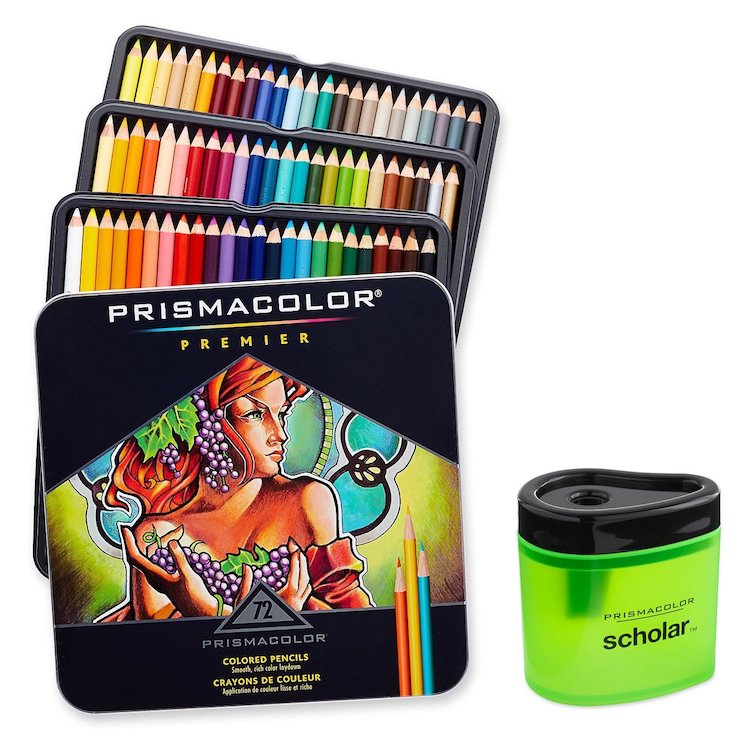
Prismacolor | $56.75
We like Prismacolor Premier’s set of 72 pencils. Check out our guide for more of the best colored pencils for professionals artists and coloring book enthusiasts.
Want to try drawing? Here are more items to have on hand.
Markers Made for Artists
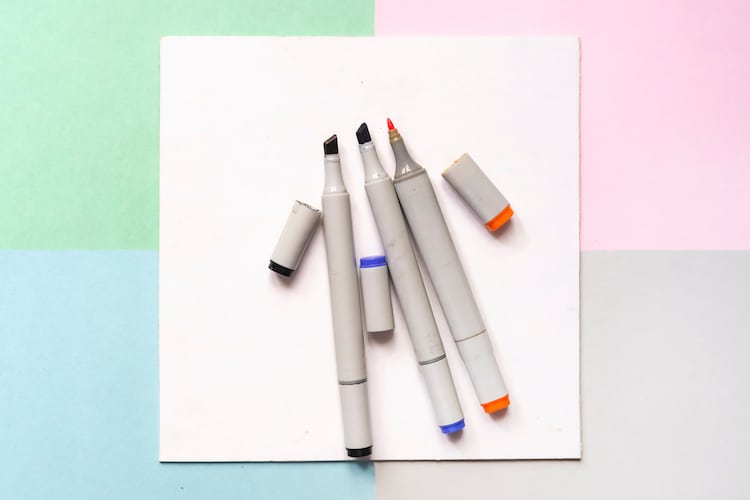
Stock Photos from Mike_shots/Shutterstock
Like colored pencils, markers are often seen as being for children. But if you’re a fan of bullet journaling, you know that great artist markers are like having tubes of paint in your pocket. High-quality sets can offer great hues in sets of 60 pens, while some allow you to blend like you would with colored pencils.
There are two popular types of artist markers—one is alcohol-based, while the other is water-based.
Alcohol-based art markers contain a combination of pigment and alcohol. They are known to be quick-drying and won’t smudge if they come in contact with water. One downside is that they could have an odor and need to be used in a well-ventilated area.
Water-based pens comprise water (or a combination of water and glycerin). They are not permanent and might smudge if your drawing gets wet.
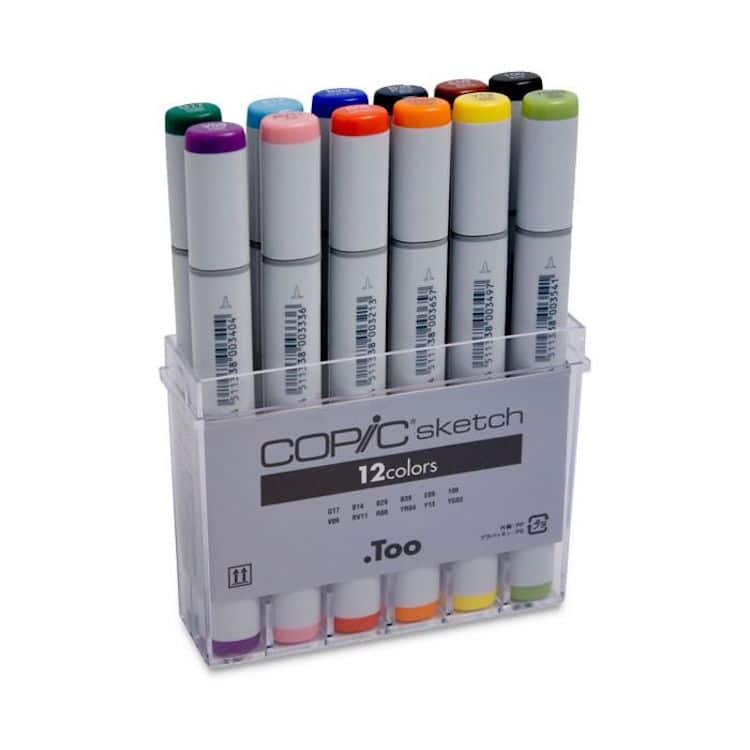
Copic | $70.20
We like Copic brand’s 12-marker sketch set. Want more markers? Check out our guide for the best artist markers out there.
A Plethora of Pens
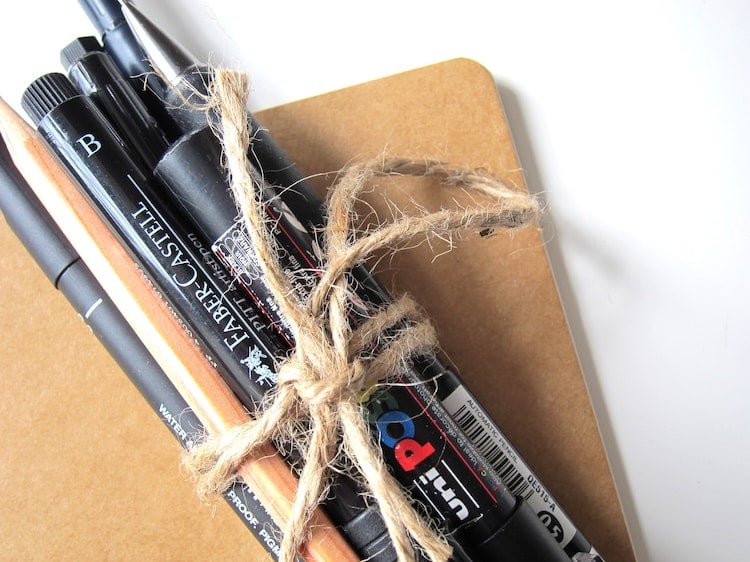
Photo: @helloimnik
Believe it or not, picking out pens is like selecting a set of pencils. You’ll definitely have your favorite pen (or two or three), but you’ll want to have a range of them when you draw. While pencils have different grades of graphite that affect softness and tone, pens vary in the width of their tip. The larger the tip, the thicker a mark it will make.
It’s best to have a thin-tipped pen that will help you achieve fine lines and details, as well as medium and thick-tipped utensils that will cover a lot of ground in just a few strokes—making them great for inking large areas.
Conventional pens are round-shaped or are angular, but don’t discount a brush-tipped pen. It is great for achieving a painterly line without having to have any painting supplies!
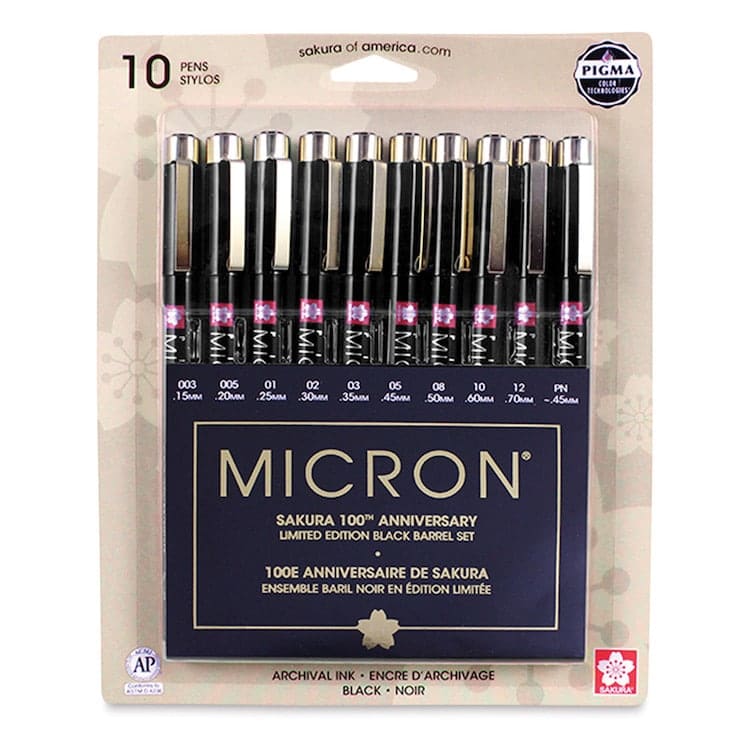
Sakura | $25.50
We like Sakura Micron Pigma’s limited edition set. It includes 10 technical pens with nibs of varying widths. Want more pens, check out our guide to different pens for artists.
Charcoal—and Not the Kind for Grilling
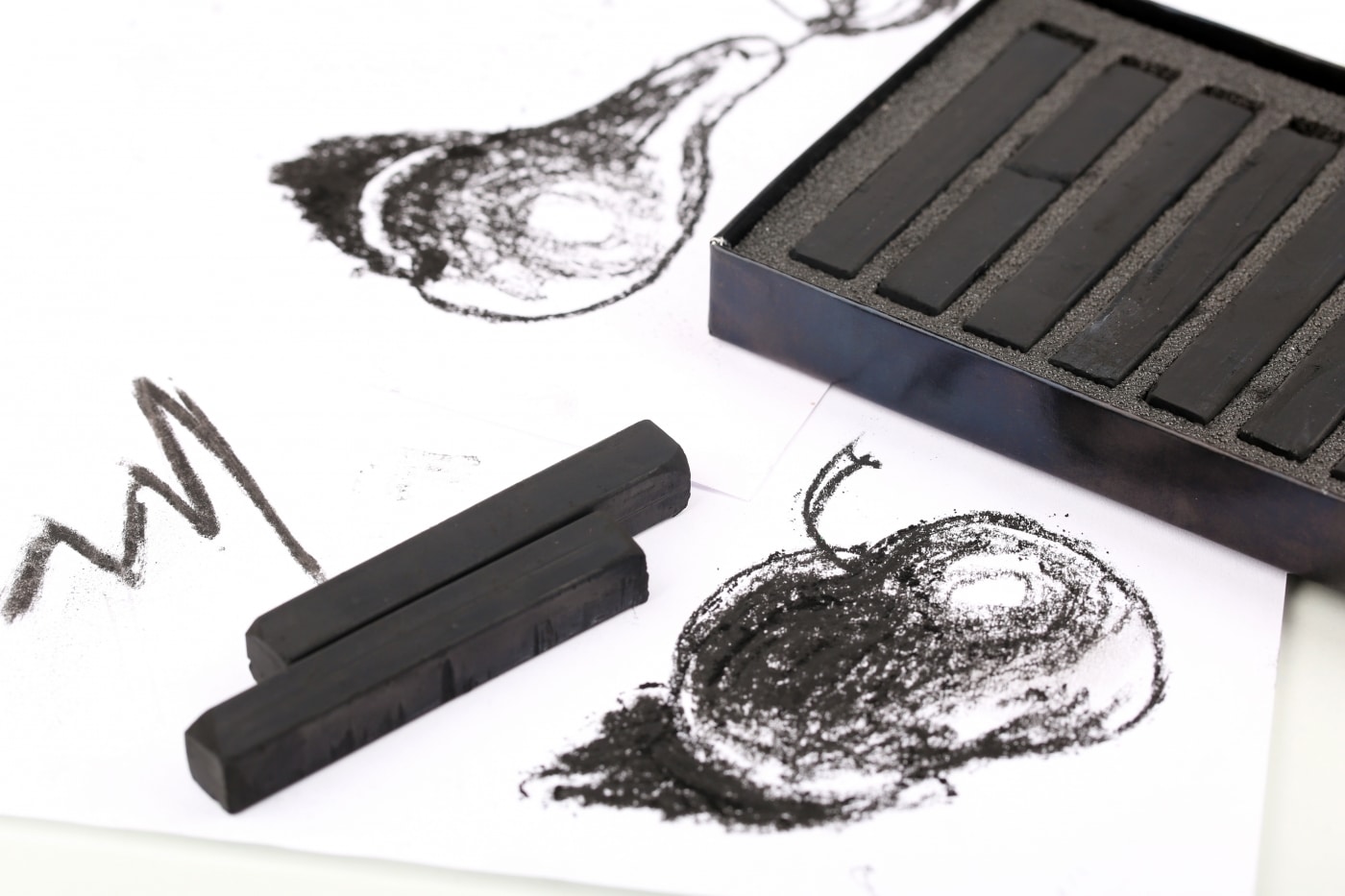
Stock Photos from Africa Studio/Shutterstock
If you fancy yourself as a student of drawing, you’re sure to be working in charcoal at some point. The smooth-yet-brittle material comes in multiple forms, and each lends itself to drawing, whether you’re working on casual sketches or a refined, finished work of art.
For your drawing toolbox, you’ll want to have willow (also known as vine) charcoal as well as compressed charcoal.
Willow charcoal is the more delicate form and comes in long strips. You won’t have to press hard on the page, and this ease makes it best for quick, gestural sketches—such as a one-minute figure drawing pose.
Compressed charcoal is powdered charcoal that’s bound with gum or wax. It’s harder than willow charcoal, and it produces deeper black tones. It’s great for creating fine lines, textures, and dark shadows. It’s available in a small stick form or as a pencil.
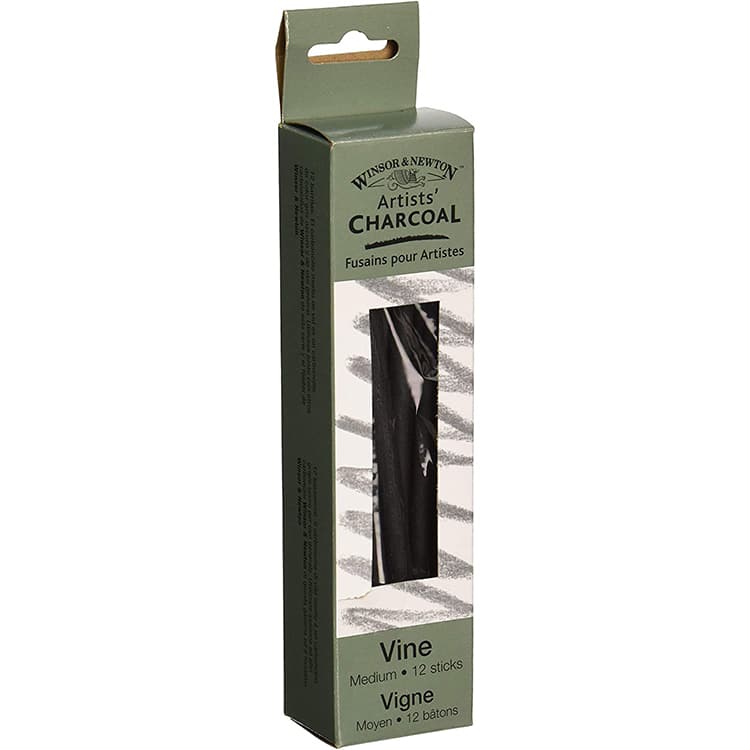
Winsor & Newton | $9.16
We like Winsor & Newton vine charcoal sticks as well as these woodless charcoal pencils by Mont Marte. Get more of our recommendations for best charcoal pencil sets and other essential charcoal supplies.
A Beloved Sketchbook and/or Sketchpad
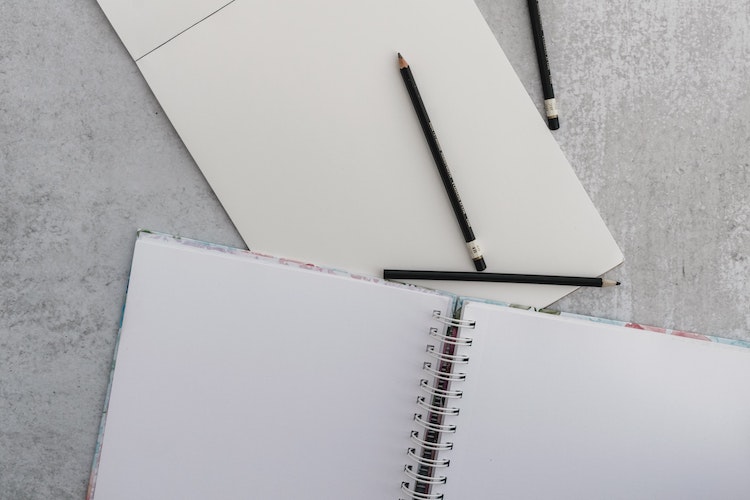
Photo: Ashely Edwards
Sheets of paper are good for when you want to create finished works of art. (In that case, make sure you check out our guide to paper types.) But if you’re planning on producing a more casual drawing, you’ll want to grab a sketchbook or a sketch pad—basically, a book of drawing paper that is bound in some way.
At what size do you like to work? If you draw enough, you’ll start to notice that there’s a scale at which you naturally sketch. Maybe it’s smaller than a quarter, or you prefer to take up the whole page. Take stock of this when selecting a sketchbook. If you like to draw big, make sure you pick something that will be large enough. But for miniature art, you can go much smaller. Also, consider where you’ll be taking your sketchbook. Will you be traveling with it? It might be wise to select a size that will fit comfortably in a backpack.
Spiral-bound sketchbooks allow you to have the book completely flat as you draw. This is a common feature and one that has a variety of covers and price ranges. You can get soft-cover sketch pads that are inexpensive, or splurge on something with a hardcover for more durability.
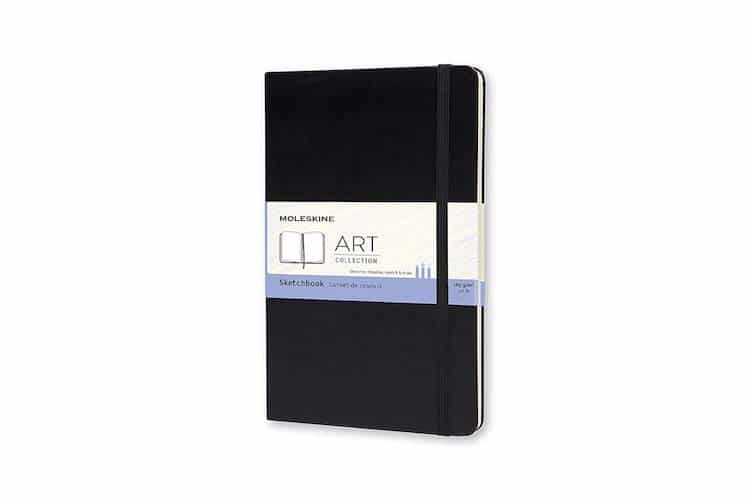
Moleskin | $26.72
We like Moleskin sketchbooks or Prat Flexbook Smartbook. For more recommendations, see our guide for the best sketchbooks.
The Unsung Heroes of Drawing
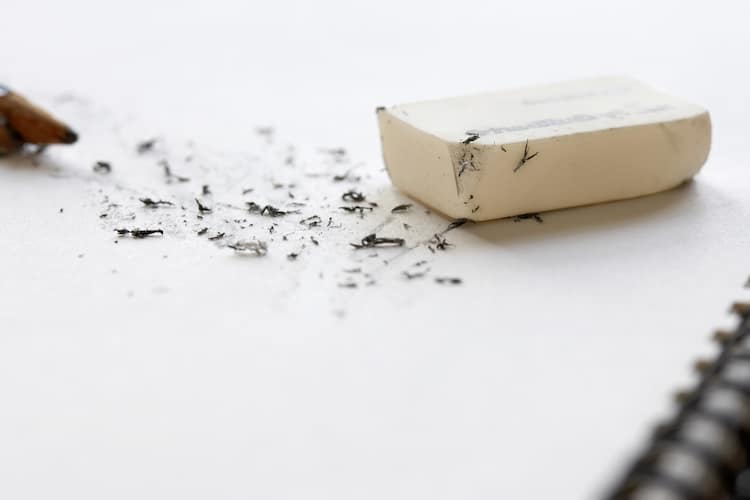
Stock Photos from sirtravelalot/Shutterstock
Pencils, pens, charcoal—we’ve covered the most essential drawing supplies for any artist. But beyond those all-important items, there are several things that are the unsung heroes of drawing. Maybe they aren’t big and flashy, but these accessories help you to become a better sk
etcher. Make sure you have the following on hand; you’ll get a lot of use out of them, as they will work across media.
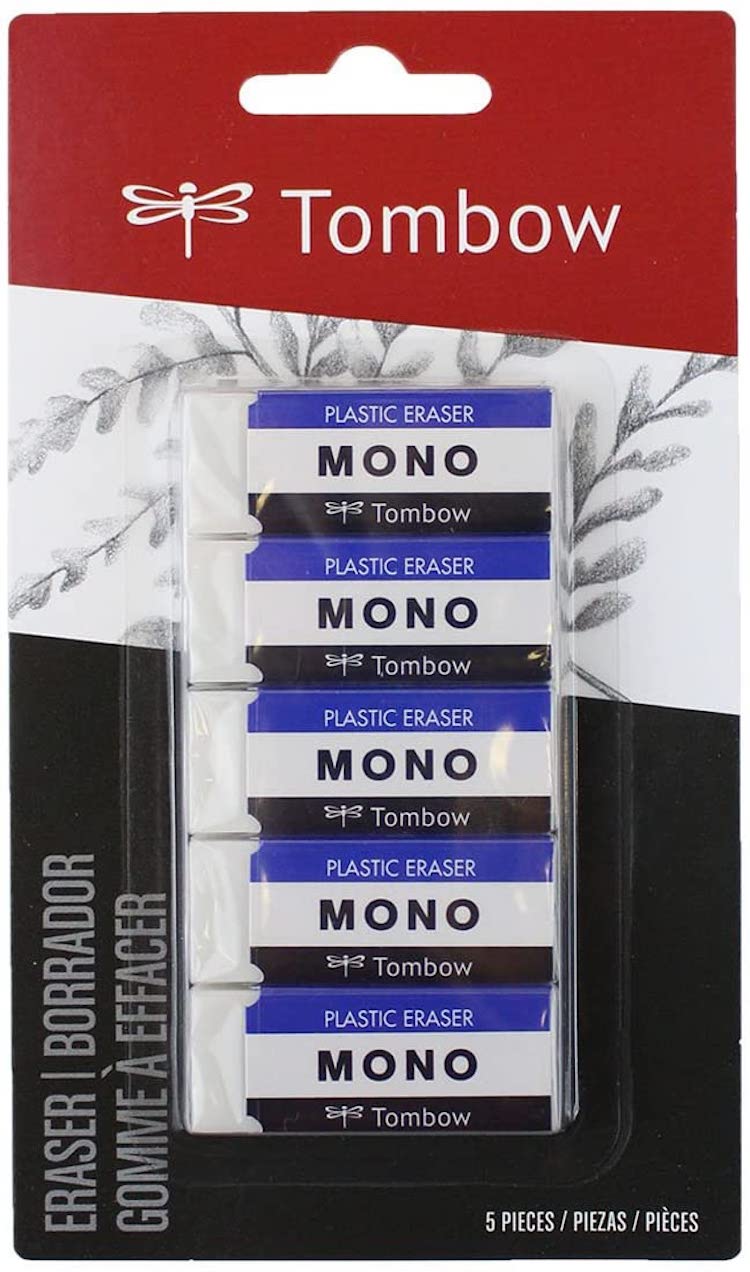
Tombow | $3.66
A vinyl eraser is at the top of the list. Opt for a white eraser to ensure that you don’t leave any pesky marks on your page. For charcoal drawing, you’ll want a vinyl eraser as well as a kneaded eraser.
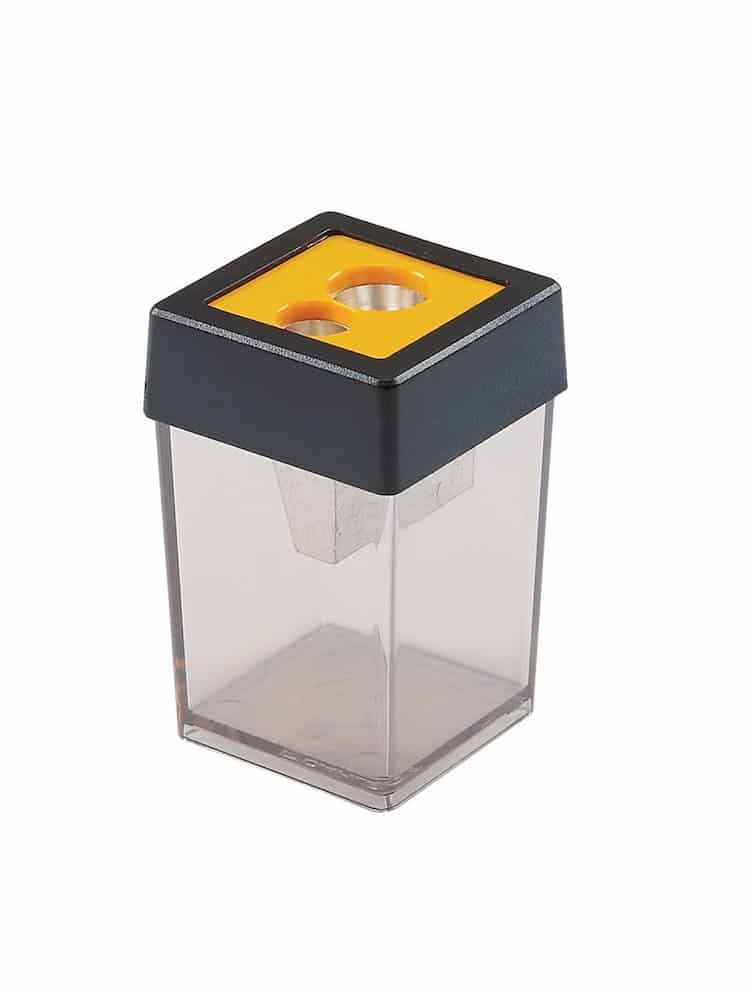
Dahle | $5.89
A sharpener. Nothing is more annoying than when you have a dull pencil tip and nothing to sharpen it.
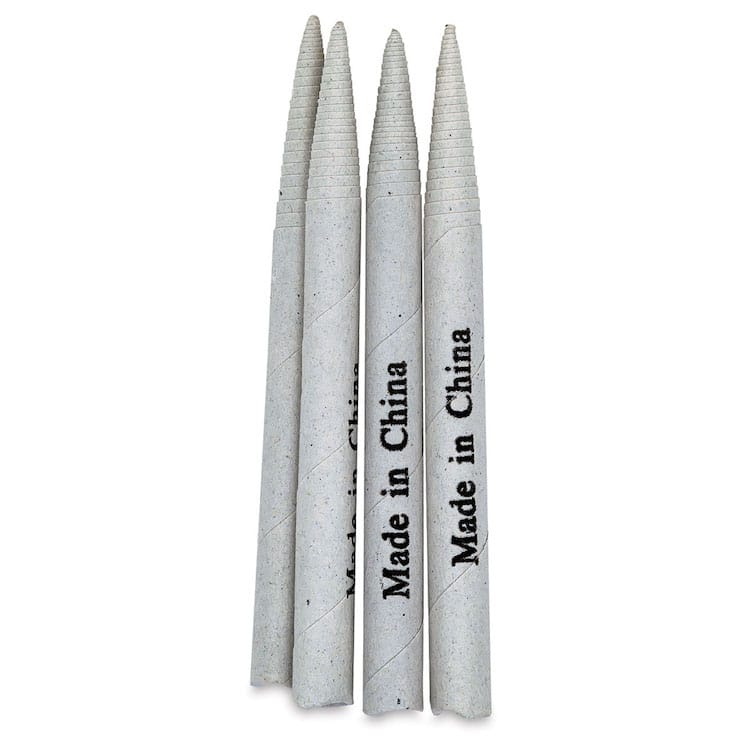
Pro Art | $1.29
A tortillon. Don’t want to get your hands dirty while blending? A tortillon, aka a blending stump, is an alternative to smudging your pencil or charcoal without using your fingers. You can also try a chamois for a similar effect.
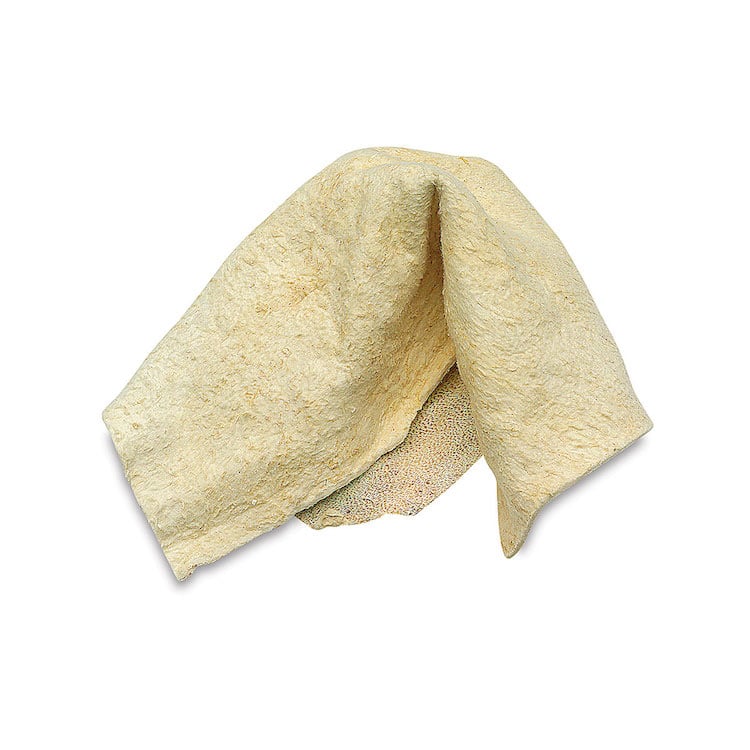
Blick | $6.39
Looking for others who love drawing? Join our Art, Design, Photography, and Drawing Club on Facebook!
This article has been edited and updated.
Related Articles:
Best Drawing Pencils for Professionals and Beginners Who Love to Sketch
Detailed Architectural Drawings Are a Modern-Day Homage to the Art of M.C. Escher
Adults Are Filling Drawings with Calming Patterns Instead of Just Coloring Them In
Artists Are Re-Drawing Their Old Work to Show How Much They’ve Improved
